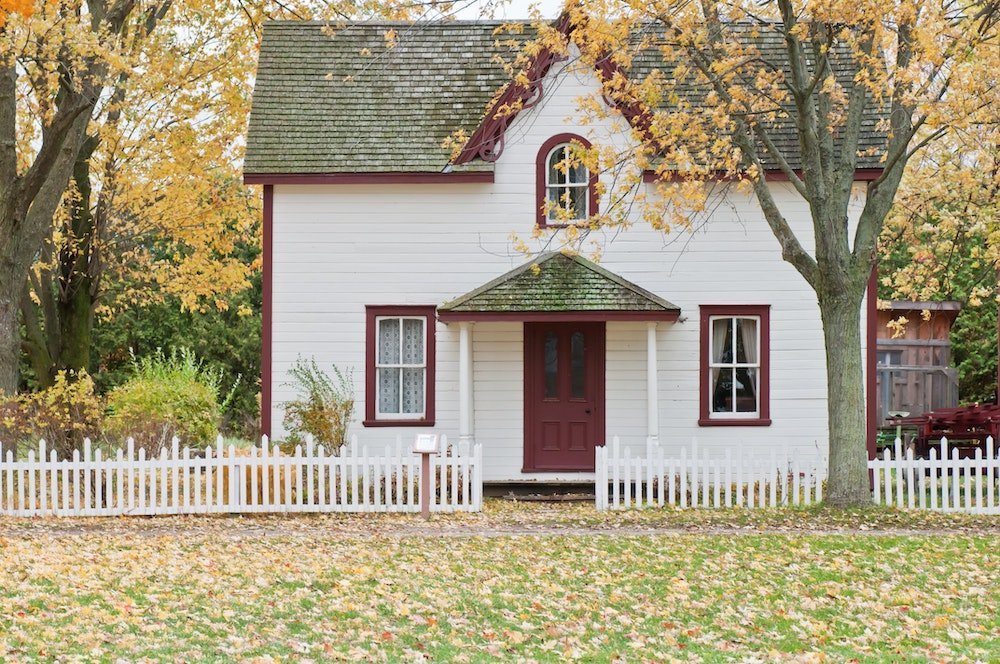
A conventional mortgage is one of the most popular mortgages among homeowners, offering lower costs and better mortgage rates than most other loan products. In short, conventional mortgages are backed by lenders such as banks, credit unions, and mortgage companies instead of backed by the government.
Since conventional mortgages aren’t government-backed, lenders have more freedom to meet the custom needs of individual homebuyers. Conventional mortgages offer lower rates, greater flexibility, and better loan terms for qualified borrowers buying a home or refinancing a mortgage.
We’ve been hearing some common questions lately: Is it hard to get approved for a conventional loan? What are the pros and cons of a conventional loan? What are the requirements and how do I apply for a conventional loan?
This article can help.
How does a conventional mortgage work?
On the surface, conventional mortgages work like most home loans. They offer popular terms (fixed-rate, adjustable-rate, 30-year, etc.) and competitive mortgage rates. Your property is collateral for your mortgage, and there is a payment schedule for the life of your loan.
Conventional mortgages are available through private lenders such as banks, credit unions, and mortgage companies. However, conventional loans are not government-backed mortgages, and there are different requirements to get approved depending on the lender.
Government-backed mortgages, such as FHA loans, VA loans and USDA loans, typically offer less strict criteria to qualify and require smaller down payments. These mortgages are typically easier for homebuyers to get approved, but the costs and fees to service the mortgage may be higher than a conventional loan.
Conventional mortgages, on the other hand, often have stricter requirements to qualify but lower costs overall. Conventional mortgages are ideal for primary residences, jumbo loans, second properties, vacation homes, and investment properties.
If you have verifiable income, a high credit score, and cash reserves, then a conventional mortgage might be your best choice.
Conventional loans fall into two categories: conforming and non-conforming.
Conforming loans in 2022 require a mortgage at or below $647,200 in most of the U.S. for a single-family property. In areas where the cost of living is higher, the conforming limit is $970,800. The FHFA sets the loan limits, which meet the requirements for Fannie Mae and Freddie Mac in 2022.
Fannie Mae and Freddie Mac then purchase and guarantee the loans, then sell them on the secondary market. This process frees up mortgage lenders so they can recover capital quickly and continue to originate, underwrite and fund home loans for homebuyers.
A non-conforming loan is any mortgage that surpasses the mortgage limit set by Fannie Mae and Freddie Mac ($647,200 – $970,800 depending on the area). A jumbo loan is a common example of a non-conforming conventional loan.
To find out the limits in your area, connect with a local mortgage advisor. An experienced mortgage advisor can discuss your home loan options and recommend a customized home loan. Together, you can meet your financial goals and save money on your mortgage.
What are the pros and cons of a conventional loan?
Depending on your situation, a conventional mortgage could save you money on your mortgage. These pros and cons can help you make an informed decision.
Benefits of a Conventional Mortgage
Available for all types of properties
Conventional mortgages can be used for a vacation home, a rental property, investment property, or your primary residence. By contrast, most government-backed loans are only available for your primary residence.
Competitive interest rates
Conventional mortgage rates are very competitive and typically lower than FHA loans. Qualified borrowers typically have verifiable income, cash reserves, and good credit history.
Low down payment requirements
Many conventional loans offer the best terms with a 20% down payment, but you can also apply for the Conventional 97 which only requires 3% down. This is a great option if you have high cash reserves but want to invest your money elsewhere.
Flexible loan terms
A conventional mortgage is available for purchase mortgages, refinancing, renovations and investment properties. Mortgage options include fixed-rate loans, adjustable-rate loans, 15-year and 30-year terms, as well as specialty loan products.
Higher purchase limits
Conventional loans are ideal for jumbo loans and unique properties that exceed limitations set by other loan products.
Financial freedom
Conventional loans can be customized alongside specialty loan programs to help you reach financial freedom.
*If you’re looking to save money on closing costs, check out our recent article on a no-closing-cost loan, which we blogged about here.
Drawbacks of a Conventional Mortgage
PMI might be required
Private mortgage insurance (PMI) will be required until you hold at least 78% equity in your home. You can bypass this requirement by providing a 20% down payment.
Strict DTI criteria
Mortgage lenders typically require borrowers to have a maximum debt-to-income ratio between 36%-43% to get approved for a conventional loan. Some lenders will go as high as 50% DTI, though this is less common.
Higher credit score requirements
A credit score of at least 620 is typically required for a conventional loan. However, aim for a 700+ credit score to get a conventional mortgage with the lowest mortgage rate and the best loan terms.
Zero-Down Payment options are not available
If you’re looking for a no-money-down mortgage, check out government-backed mortgages like the VA loan or a USDA loan.
* Conventional mortgages are often a top choice for homebuyers who are buying a home as an investment property, a second home, or want to buy a home with a purchase price above conforming limits.
RELATED: How to get qualified for a mortgage with a friend or family member
How to Apply for a Conventional Mortgage
Step 1. Estimate how much you can afford [click here]
Step 2. Start your free custom mortgage application [click here]
Step 3. Gather your documentation (e.g., identification, income, assets, employment)
Step 4. Connect with a mortgage advisor to discuss your options [click here]
Step 5. Close on on your new mortgage and start saving money!
If you’re self-employed or plan to qualify using non-standard income, read this recent article we blogged about here…
Is it difficult to get approved for a conventional loan?
Homebuyers with established credit and solid financial positioning will typically qualify for a conventional mortgage with the best terms: the higher your credit score, the better your interest rate.
Mortgage lenders will compete for your business if you have a high credit rating, a low debt-to-income ratio, consistent income, and high cash reserves.
On the other hand, homebuyers with a short credit history or more debt than usual, might not get approved for a conventional loan. Side note, if you’ve got student loan debt and want to get approved for a mortgage, we blogged about that here.
A few criteria that might keep you from getting approved for a conventional loan:
- bankruptcy or foreclosure in the past 7 years
- credit score below 650
- debt-to-income ratio above 45%
- down payment less than 10%
What are the minimum requirements to qualify for a conventional mortgage?
- credit score 620+
- debt-to-income ratio less than 43%
- proof of employment
- verification of income
- down payment of at least 3%
Worth noting, borrowers who have a DTI of 36% or less, a 700+ credit score, and high cash reserves will be able to get the most competitive loans.
RELATED: HOW TO BOOST YOUR CREDIT SCORE IN LESS THAN 60 DAYS
Best Alternatives for First-time Homebuyers
If you’re a first-time homebuyer, check out the top five mortgages for first-time homebuyers, which we blogged about here. Even if you don’t fit the profile for a conventional loan, there are several advantages available to first-time homebuyers.
The FHA loan is another great option for homebuyers. The FHA loan has flexible approval requirements and offers low rates and a low down payment.
If you’re an active member of the military, the VA loan is a great option with several benefits, including low rates and a 0% down payment requirement. Find out more on our recent article posted here.
Working with a qualified mortgage advisor who understands your situation is the best decision you can make. An experienced mortgage advisor can recommend custom loan options and help you get approved for a preferred mortgage.
Next Steps
When you’re ready to apply for a mortgage or refinance, an experienced mortgage advisor can help you decide whether or not a conventional mortgage is the best loan for you. We offer homebuyers specialty loan products, conventional loans, government-backed mortgages and more. Connect with a mortgage advisor to discuss your options and make a plan that can help you save money on your mortgage. We’d love to help.






